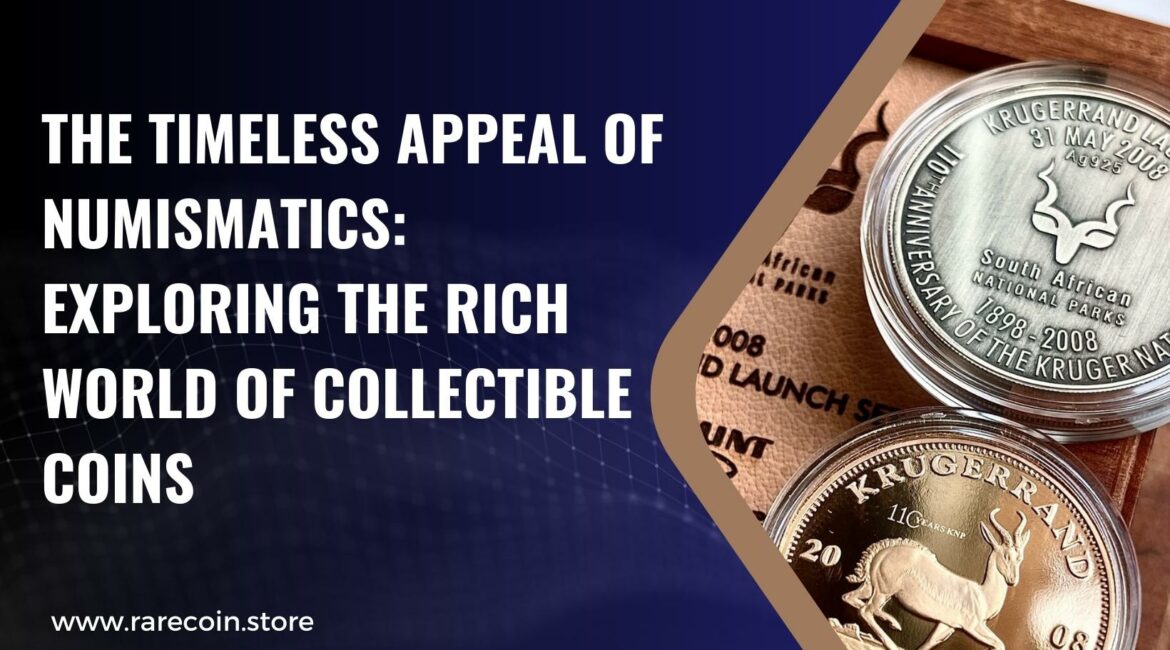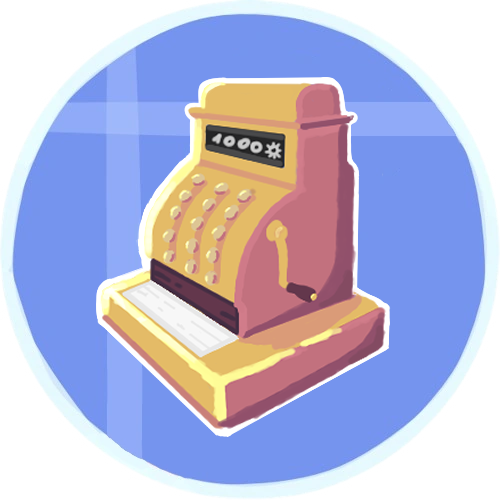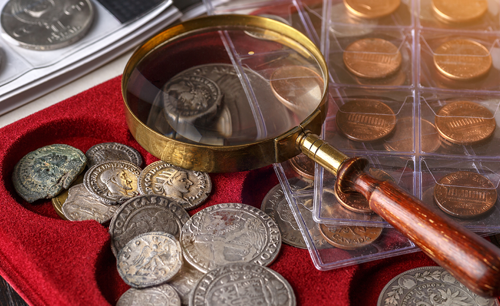Excellent News To Choosing Gold Coins And Coin Dealer
Excellent News To Choosing Gold Coins And Coin Dealer
Blog Article
How Can I Find Out More About Numismatics With Respect To Regional And Global Associations By Using A Database?
The study of numismatics in relation to regional and global associations involves leveraging databases that provide information on numismatic organizations, conferences, publications, and collaborative projects. This is a method that can be structured for conducting such research. In addition databases for academics and repositories such as JSTOR offer access to scholarly papers and conference proceedings.
Define Research Focus: Specify your research objectives. Are you interested in exploring the past and current activities of global numismatic associations or regional collaborations, conferences publications, or specific issues in numismatics that are discussed within these organizations? Define your goals in order for your research.
Search Strategy - Use keywords like "numismatic" or "global", and add specific names for geographic regions, associations or other geographic areas in the event that they are pertinent. Advanced search is a way to filter your results by date, document types (such as association newsletters or conference papers) and geographic scope.
Data collection: Get details on the members' mission, their history and publications of global and regional associations. Information on the past and upcoming research, conferences, and workshops are accessible. Search databases for member of the association, their leadership, as well as contact details.
Analyze: Analyze your data to gain more understanding of the regional and global numismatic associations' role and impact. Examine how these organizations help to advance numismatic research, promote international collaborations, and disseminate research via conferences and publications.
Cross-Referencing: Verify the accuracy of your findings by cross-referencing data from different databases and sources. Check out the initiatives and activities of various organizations to gain an overview of the local and global developments in numismatics.
Documentation: Record your findings thoroughly including citations to sources and noting the methods used. Note the details of the databases you accessed and the search terms you used and the significance each source has to the research question you are trying to answer.
Keep up to date: Numismatic associations are always evolving with new publications, as well as conferences. They also collaborate on projects. For the latest updates in international and regional numismatics keep an eye on association websites and databases.
You can use databases effectively and effective using these methods. This will allow you to examine the structure of organizations and scholarly activity as well as collaborative efforts which define the field of numismatics on the global as well as regional level. Follow the top rated inquiry on coin storage for site tips including numismatic value, franc, currency collecting, platinum, banknote design, treasury, coin planchet, commemorative coins, penny, coin design and more.
How Can I Use Numismatics To Do Research On Refineries In Databases?
Here's a systematic approach to conducting research in this area: Database Selection: Select databases that specialize in minting processes, precious metals and the past and present technology of refineries. The following is a methodical way to conduct such research. Some examples include databases of major refineries, such as Johnson Matthey and Heraeus or mints run by government agencies such as the United States Mint and Royal Canadian Mint.
Define Research Focus: Specify your research objectives. You may be interested in learning about the history of refineries and their operation, technological advancements producing coins, gold bullion or in high-quality standards and certifications of refineries that use precious metals. Find out the key to your research.
Search Strategy: Use keywords such as "precious Metals Refineries", "minting Processes", "bullion Production" and include refinery names, geographical areas, or historical dates If relevant. Utilize advanced search options to sort results by kind of document, time of publication (such as technical reports or production figures) or refinement methods.
Data collection: Access refinery information including the date of opening, refining methods employed (such as chemical or electrolytic), precious metals that are processed at each refinery (gold platinum, silver,) as well as notable technological advancements in refining.
Analysis: Analyze and understand the role played by refineries in Numismatics. Examine the role of refineries in the supply of precious materials to produce coins and bullion. They also guarantee that quality control is maintained and uniformity is achieved during minting processes. Compare technologies and refineries.
Cross-References: Check what you've discovered by cross-referencing information from multiple sources and databases. This will ensure that your research is reliable and complete, providing a full picture of the refineries' contributions in numismatics.
Documentation: Document your findings in a structured manner including sources and the methods used. Keep track of the details like the databases you have accessed, your search terms, and the relevance of these to your research questions.
Keep up-to-date: Standards and technologies for refinery are evolving with the times. Keep up to date by reading industry publications, refinery and mint reports to stay up-to-date with the latest advancements in refining technology and their effect on the numismatics industry.
Following these steps will allow you to effectively explore numismatics as it relates to refineries. This permits an in-depth study of the technology, quality control, and their historical contribution to coin and bullion production across the globe. Read the most popular see page for commemorative coins for website examples including currency forum, banknote design, rand, banknote identification, denomination, coin holder, ringgit, currency catalog, dinar, banknote display and more.
What Can I Do With A Numismatics Database To Find Legal Experts To Help Me In My Research?
The study of numismatics and experts in the field of law requires using databases that focus on numismatic law, regulations regarding currency and coinage and legal precedents relating to numismatic disputes, and academic articles that discuss the legal aspects of the numismatics. This is a systematic method for conducting such research. Database Selection: Select databases that are specialized in legal research, numismatic laws, court cases dealing with the numismatic issue, as well as academic publications about legal aspects of numismatics. For instance, legal search platforms like Westlaw and LexisNexis as well as numismatic journal publications and law journals. publications from numismatic associations.
Define Research Focus: Specify your research objectives. Are you keen to know the legal frameworks and regulations governing coinage or currency as well as numismatic dispute resolution regulations on coin circulation and production, or interpretations and definitions of numismatic authenticity and ownership? Determine where you wish to target your search.
Search Strategy: Use particular legal concepts like authenticity or ownership when you search. You can also include historic cases. Use advanced search features to filter results by the date, region (national or international), and legal topics relevant to numismatics.
Data Collection: Get information on legal precedents, court rulings or legislative text, as well as research papers on the law of numismatics. Collect case summaries as well in analysis of legal law, interpretations or pertinent statutes. Also, gather historical perspectives and details on the law of numismatics.
Analyze the data to understand the issues and legal implications of the numismatics. Learn how the legal frameworks impact numismatic transactions and other processes like collection management, authentication, as well as international trade. Compare the legal approaches and interpretations across different jurisdictions.
Cross-Referencing. Examine what you've discovered by cross-referencing information from various databases, journals, court files and academic papers. This is a fantastic method of ensuring that you're doing an accurate and thorough study. Also, you'll have a clear understanding of the legal landscape in the field of numismatics.
Documentation - Document your research findings in a systematic manner by noting the sources you used and the methods you've employed. Note the database's names, search terms, and relevance of each resource to the research questions.
Be up-to-date Legal changes and court decisions influence the interpretation of numismatic laws. Keep abreast of legal developments by keeping track of updates on databases of legal information, publications on numismatics law and society for numismatics.
Use these guidelines to utilize databases effectively to explore numismatics that are based on the opinions of experts in law. This method allows for a thorough analysis of the legal frameworks, the challenges and scholarly interpretations that intersect with the numismatics field and provides insight into the legal aspects governing collections, coins, and trade worldwide. Follow the top penny url for website info including banknote display, banknote club, forint, silver coins, lira, numismatic value, coin collecting, zloty, legal tender, proof and more.
What Can I Do With An Online Database For Research? Numismatics In Connection With Online Forums And Communities?
Here's how to conduct such research: Here's a systematic approach to conduct research on databases: Database Choice: Select online communities and forums that are specialized in numismatics. For example, forums like CoinTalk or Reddit's r/Coins, as well as specific communities devoted to numismatics on social media platforms like Facebook groups, LinkedIn, or Facebook groups are a few examples.
Define Research Focus: Specify your research objectives. You may be interested in knowing more about current trends in collecting, or talking about specific coin types or historic periods. You may also need advice on the authenticity of your coins or grade them. Clarify your goals to help you narrow your search.
Search Strategy: Make use of terms that relate to your interests such as "numismatic forums," "coin collecting communities," "online numismatic discussions," and include specific areas (ancient coins contemporary coins paper money) or search terms related to the topic you are researching. Utilize search functionalities on each platform to locate relevant discussions and threads.
Data Collection: Browse through threads, discussions posts, discussions, and other content in forums online and community. Learn about coin identification techniques, current market trends discussion, personal experiences and other information about numismatics.
Analysis: Analyze the data to understand the opinions, expertise and experiences of members of the online community of numismatics. Assess the credibility of the data by evaluating the opinions of experts, the consensus of members on certain topics, as well as the depth of discussion.
Cross-Referencing Verify your findings through cross-referencing across communities and forums. Examine the insights of different platforms in order to gain a wider perspective of collecting patterns and market trends.
Documentation: Documenting your findings is crucial. Cite specific threads, discussion issues, and contributors as you need to. Notate key insights, trends and the opinions of others that are posted on forums online.
Engage: Take part in the discussions Ask questions and contribute to it to gain new knowledge and establish connections within the numismatics community. Stay up-to-date with the most recent threads, announcements, and responses.
Online forums can be used to look up numismatics research by following these easy steps. This allows you access to the experience and knowledge of a vast variety of experts and collectors. You can learn valuable information about the various aspects of collection, identification, and appreciation. Check out the best https://zlatemince.cz/ for site info including banknote club, coin issue, coin errors, yen, legal tender, banknote dealer, coin edge, precious metals, coin errors, proof and more.
How Can I Learn More Information About Industry Consultants By Using A Numismatics Database?
Here's a method for conducting such research:Database Selection: Choose databases that are specialized in consulting companies, industry reports and publications relevant to numismatics. This is a method that can be structured to conduct such research. Websites of business directories, sites of consulting firms, publications from numismatic societies, and databases specifically designed for specific industries are some examples.
Define Research Focus: Specify your research objectives. Are you looking to find out about consulting services available for firms that specialize in numismatics? Do want to know the market analysis for Numismatics? What are the specialties of consultants in industry and what trends they identify? Find your niche to direct your search.
Search Method: Search using words like "numismatic industry consultant", "numismatic consultancy firms" as well as "market analysis of coins" to get appropriate results. If applicable, you can also include geographical regions and specific areas of knowledge. Advanced search options let users to filter their search by date, consultant specialty, and consulting service offered.
Data Collection: Access to information about consulting firms that specialize in numismatics. In addition, there are consultants from industry that provide services to the numismatic business. Data Collection: Get information on consulting firms and their specializations (market analysis and collection management and authentication) and testimonials from customers, and reports written by industry consultants.
Analyze the data to evaluate the importance and contributions of consultants within the numismatic industry. Examine the expertise of consultants and methodologies in providing advice on investments in numismatics and market trends. Also, evaluate the strategies they employ to manage collections and regulatory compliance.
Cross-Referencing Verify findings by cross-referencing data from various directories of consulting firms, databases, numismatic publications, as well as an industry report. This will ensure completeness and accuracy in your research.
Documentation: Document your findings systematically including citations to sources and a note of the methods you used. Take note of the information in the databases you used and the search terms you used, and how each source relates to your research question.
Stay informed Consultancy services and market trends in numismatics are evolving with economic changes and regulatory updates. Stay up-to-date by keeping an eye on updates to consulting firm websites, industry publications, and numismatic societies' publications. They'll provide most recent perspectives and information from experts in the field.
Following these steps, you will be able to effectively utilize databases to study the world of numismatics and industry consultants. This approach allows for an extensive study of the advice, market analysis, strategic insights and business strategies offered by industry experts. Check out the top peso examples for website info including circulated, coin mintmark, banknote news, coin planchet, nickel, dollar, banknote forum, proof, coin society, coin catalog and more.